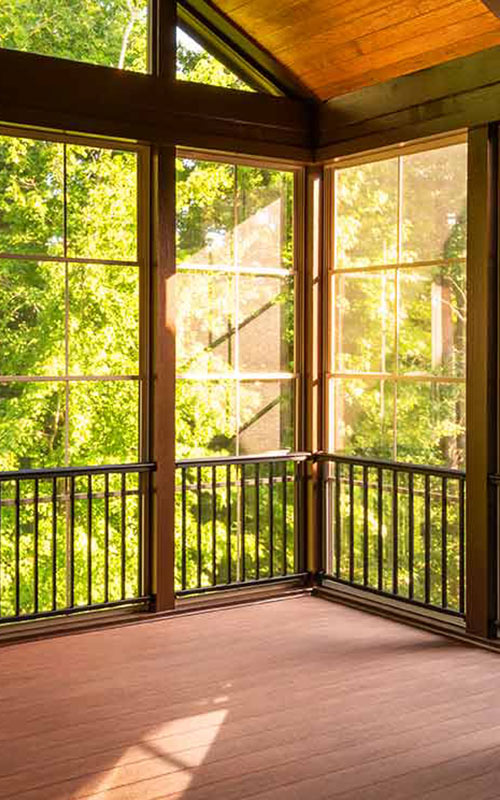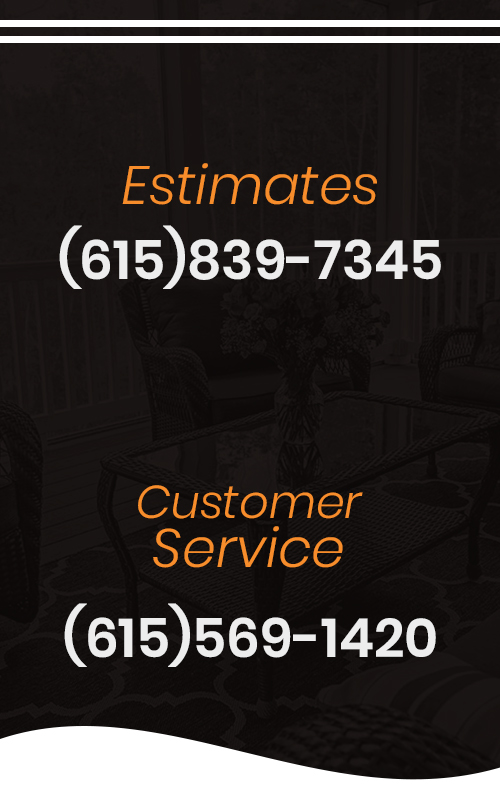A porch is an extension of a home’s living area, an ideal place to enjoy the summer breeze, watch the scenery, or enjoy the birdsong. Since most people want to spend more time outdoors, it’s no wonder that many homeowners want to install screens on their porches. When protected from insects and blowing leaves, porch living has a new appeal.
In this blog, we’ll help you decide which screened porch materials are right for you and whether you should install them yourself or consider hiring a professional. When you’re ready to start working on your screened porch, be sure to consider the following:
When calculating the cost of putting up a screened porch, include screen materials, lumber, and labor
Materials to put up a screen on an existing screened porch of about 200 square feet could cost as little as $450, including the lumber needed to build the screen panels, screen fabric, screws, and paint to finish the frames to match your home’s trim. If you want to hire a professional for the project, add about $300 to $600 more labor to the average total cost of enclosing a porch.
Screening Kits Can Save You Time and Money
If you’re looking for a compromise between building a screened porch from scratch and hiring help, you can consider purchasing a screened porch kit from home improvement stores and online retailers. A typical 8-foot by 8-foot kit contains everything you need to cover an 8-foot by 8-foot section of a screened porch and typically sells for between $250 and $300.
Remember that individual sections can usually be cut to fit a smaller area but cannot be adjusted to accommodate a larger area. Depending on the dimensions and configuration of your porch, you may need to purchase multiple sections.
If your porch needs a roof or additional structure, be prepared to spend a lot of money
Professionally, building a screened porch or covered deck can cost anywhere from $5,000 to more than $20,000, depending on the size and design of the project and whether custom railings, windows, and other upgrades are included. Most homeowners who want to screen their porches already have suitably screened porches in their homes. In these cases, frames are often all needed to hold the screens.
Consider both personal taste and practicality when selecting screen panels for your porch
The size and configuration of the screen panel depends on both the size of the porch and the homeowner’s preference, and each style has its advantages and disadvantages:
Smaller screen panels are relatively easy to repair if the screen breaks, although they obstruct the view.
On the other hand, large screen panels provide an open, less obstructed view but are more complex and expensive to repair than smaller panels.


